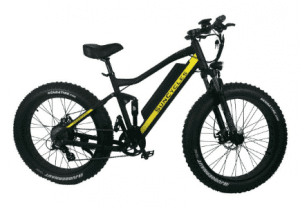
Agriculture
June 22, 2024
SunCycles Electric Fatbike
Read SolutionImplemented by
SunCycles
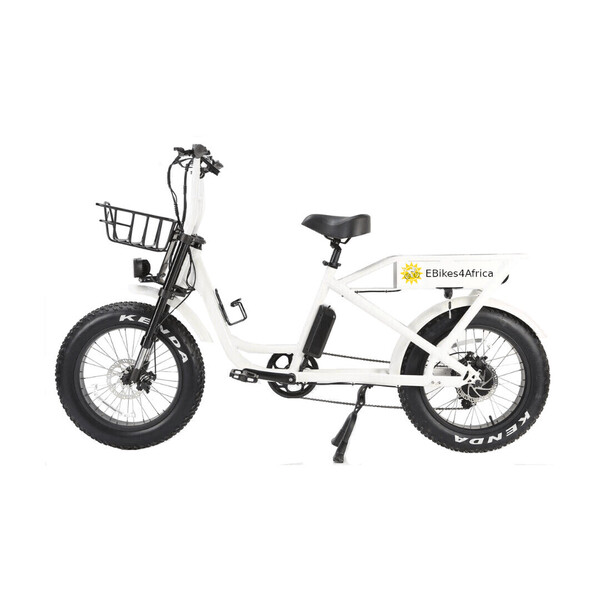
Updated on June 22, 2024
·Created on October 19, 2020
The Deliver-E-Bike is an electric cargo bicycle made in Namibia
SunCycles Deliver-E-Bike is an electric cargo bicycle designed to carry loads of up to 100 kg and to handle different road conditions. The bicycle runs on a battery that can be charged from solar power or through an electric 220 V AC power plug. It is distributed by Ebikes4Africa, a social enterprise based in Namibia specialising in locally designed electric mobility solutions and solar recharge systems. The electrical bicycles can be purchased or rented, and delivery services are also offered via a Deliver-E fleet.
Target SDGs
SDG 7: Affordable and Clean Energy
SDG 9: Industry, Innovation and Infrastructure
Market Suggested Retail Price
$1,679.00
Target Users (Target Impact Group)
Household, Community
Distributors / Implementing Organizations
Ebikes4Africa
Competitive Landscape
Direct competitors include Boogaali Bikes, Mozambikes, and Buffalo Bicycle.
Regions
Africa
Countries
Namibia, South Africa, Uganda
Manufacturing/Building Method
Designed and assembled in Namibia, SunCycles can either retrofit a standard bicycle or manufacture a complete e-bike.
Intellectural Property Type
Trademark
User Provision Model
Users can purchase or rent an e-bike from the manufacturer’s website or go to the manufacturer’s workshop to convert a bike to an e-bike.
Distributions to Date Status
As of May 2020, SunCycles have distributed ~250 bicycles.
Capacity
2
Gear Ratio
6 to 9-speed gears depending on terrain Interview with manufacturer 2020
Maximum load capacity (kg)
150 kg Interview with manufacturer 2020
Design Specifications
The Deliver-E-Bike is a desert-friendly electric delivery bicycle designed to handle all road conditions with 20 x 4 inch broad fat bike tires. The BAFANG high-torque back hub motor requires pedalling to start as it is activated by a sensor in the pedals. The e-bike has a step-through frame and a display screen on the handlebars which shows battery capacity, speed and assistance level. The 48 V 15-50 Ah Li-ion batteries can be recharged at the SunWorkshop in Windhoek, at solar recharge stations provided by SunCycles, or with a provided 220V AC charger at standard power outlets. Charging time is ~4-5 hours from empty to full, the range is 50-75 km per charge and the max speed of the bike is 35 km/h.
Technical Support
Users can contact the manufacturer.
Replacement Components
Spare parts are available on the manufacturer’s website
Lifecycle
SunCycles offer a 12-month warranty on all electrical parts, including the motor.
Batteries start to lose efficiency after ~1000 charges, which would provide at least 10,000 - 15,000 km of riding. The manufacturer takes old batteries for recycling and offers replacements.
Manufacturer Specified Performance Parameters
Ebikes4Africa aims to improve connectivity to vital facilities and increase economic empowerment in rural areas by providing affordable e-bikes. They want to decrease CO2 emissions, fossil fuel dependency and social disparity in the communities it serves.
Vetted Performance Status
The manufacturer states that Ebikes4Africa are 100% carbon neutral, emission-free, and noise-free. Testing has been conducted on the different parts (battery, motor, etc.) of the bike to evaluate component lifetime. Field tests conducted by the manufacturer on the Deliver-E bike determined a lifespan of up to 15,000 km and energy consumption of 10-15 Wh/km, however, no third-party testing has been completed. Interview with manufacturer 2020
Safety
The users are required to wear helmets while riding a bicycle as per Namibia’s Road Traffic and Transport Regulations. The manufacturer also provides safety tips concerning battery maintenance and tire pressure.
Complementary Technical Systems
A charging system – either an electrical grid or a solar panel system – is needed to recharge each bicycle.
Academic Research and References
Fishman, E., and Cherry. C., 2015, E-bikes in the Mainstream: Reviewing a Decade of Research, Transport Reviews, 36(1), pp. 72-91.
Rose, G., 2012, E-bikes and urban transportation: emerging issues and unresolved questions, Transportation, 39(1), pp. 81-96.
Fyhri, A. and Fearnley, N., 2015, Effects of e-bikes on bicycle use and mode share, Transportation Research Part D: Transport and Environment, 36, pp. 45-52.
Schleinitz, K., Petzoldt, T., Franke-Bartholdt, L., Krems, J. and Gehlert, T., 2017, The German Naturalistic Cycling Study – Comparing cycling speed of riders of different e-bikes and conventional bicycles, Safety Science, 92, pp. 290-297.
Compliance with regulations
No license is required to use the e-bikes. It is, however, a requirement in Namibia that bicycle riders wear a helmet.
Evaluation methods
The manufacturer cites emissions, component lifespan and energy consumption as evaluation criteria.
Other Information
SunCycles' finalist video for the Entrepership World Cup.
Other e-bike models are available to view on Ebikes4Africa's online shop.
In 2019, Ebikes4Africa were awarded Namibia's Best Social Impact Startup
Video of Ebikes4africa Pitch
Videos of SunCycles Designed and Assembled in Namibia

Agriculture
June 22, 2024
Implemented by
SunCycles
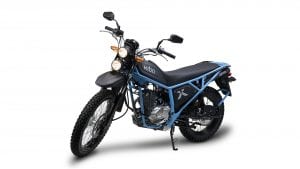
Agriculture
June 22, 2024
Implemented by
KIBO
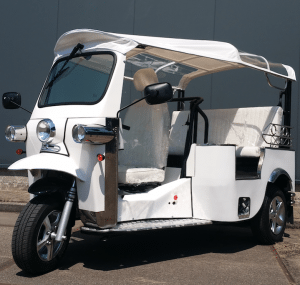
Agriculture
June 30, 2024
Implemented by
Tuk Tuk Factory
Agriculture
August 4, 2024
Implemented by
tuktuk

Agriculture
January 21, 2024
Implemented by
Cambridge Industries Ltd.

Agriculture
June 24, 2024
Implemented by
SparkMeter

Agriculture
June 23, 2024
Implemented by
LOOPShare Ltd.
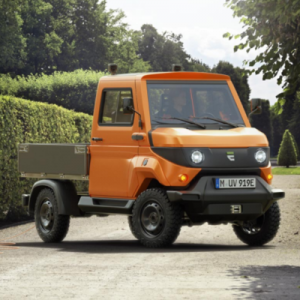
Agriculture
June 27, 2024
Implemented by
EVUM Motors
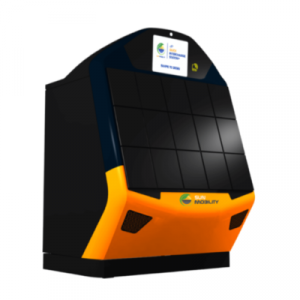
Agriculture
June 28, 2024
Implemented by
Sun Mobility
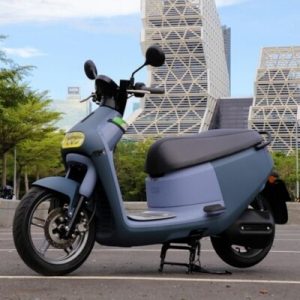
Agriculture
June 27, 2024
Implemented by
Gogoro Inc.
Have thoughts on how we can improve?
Give Us Feedback